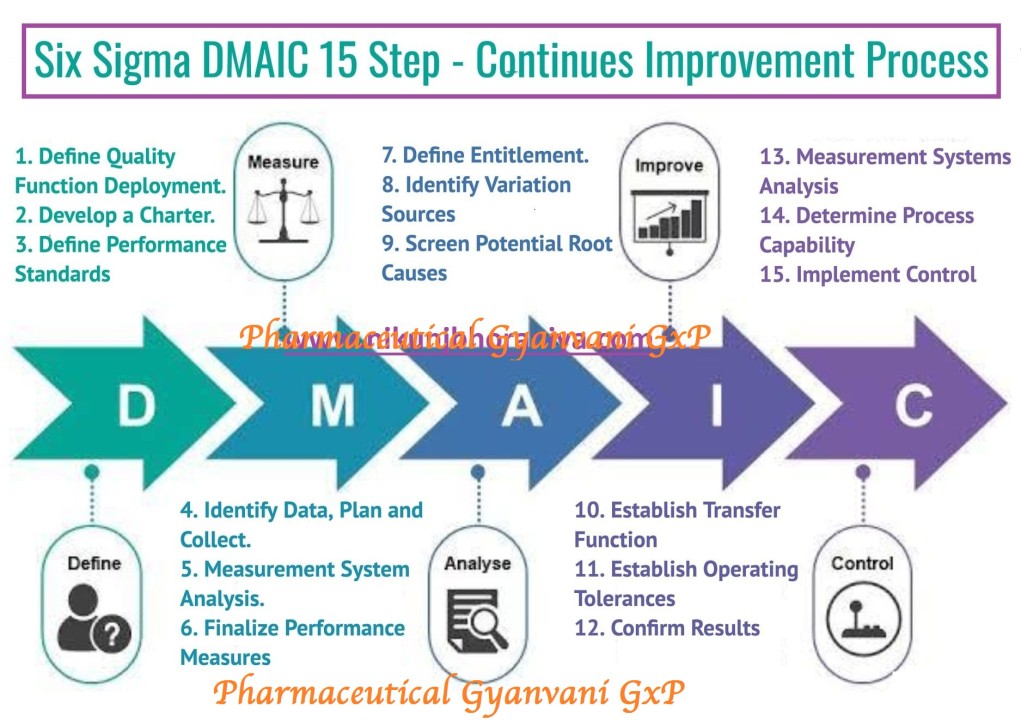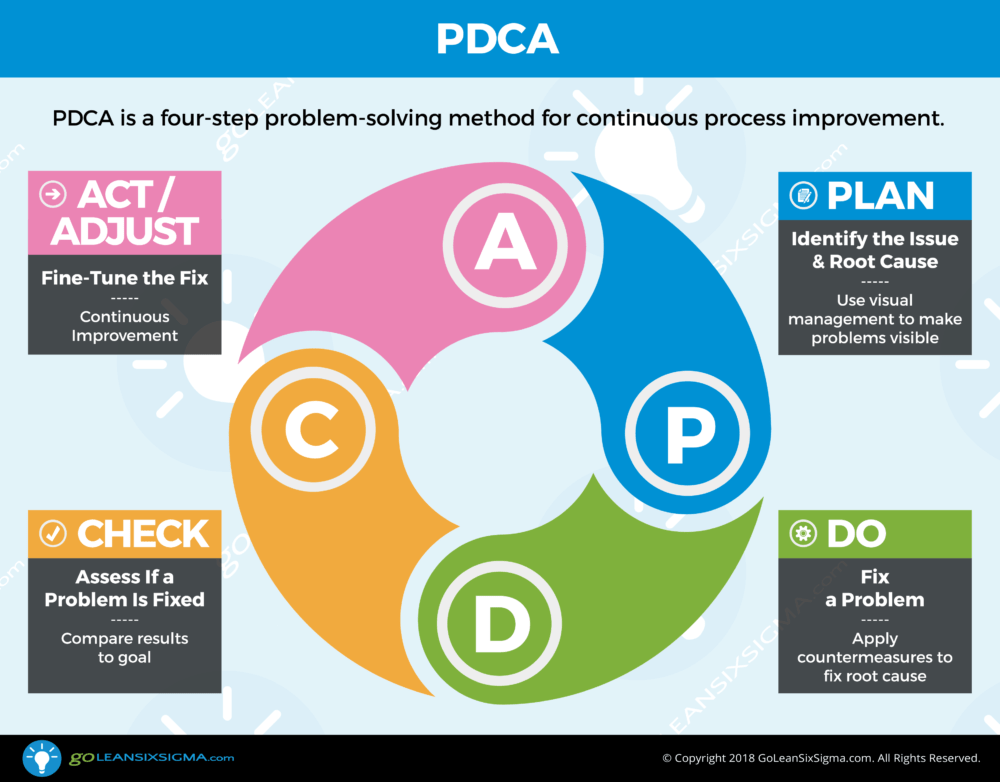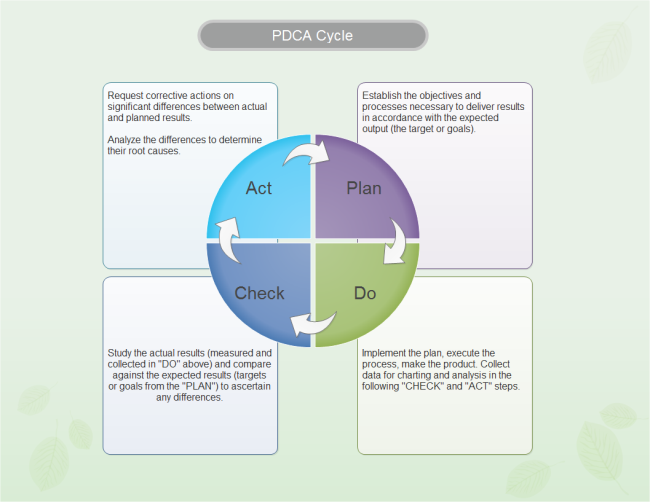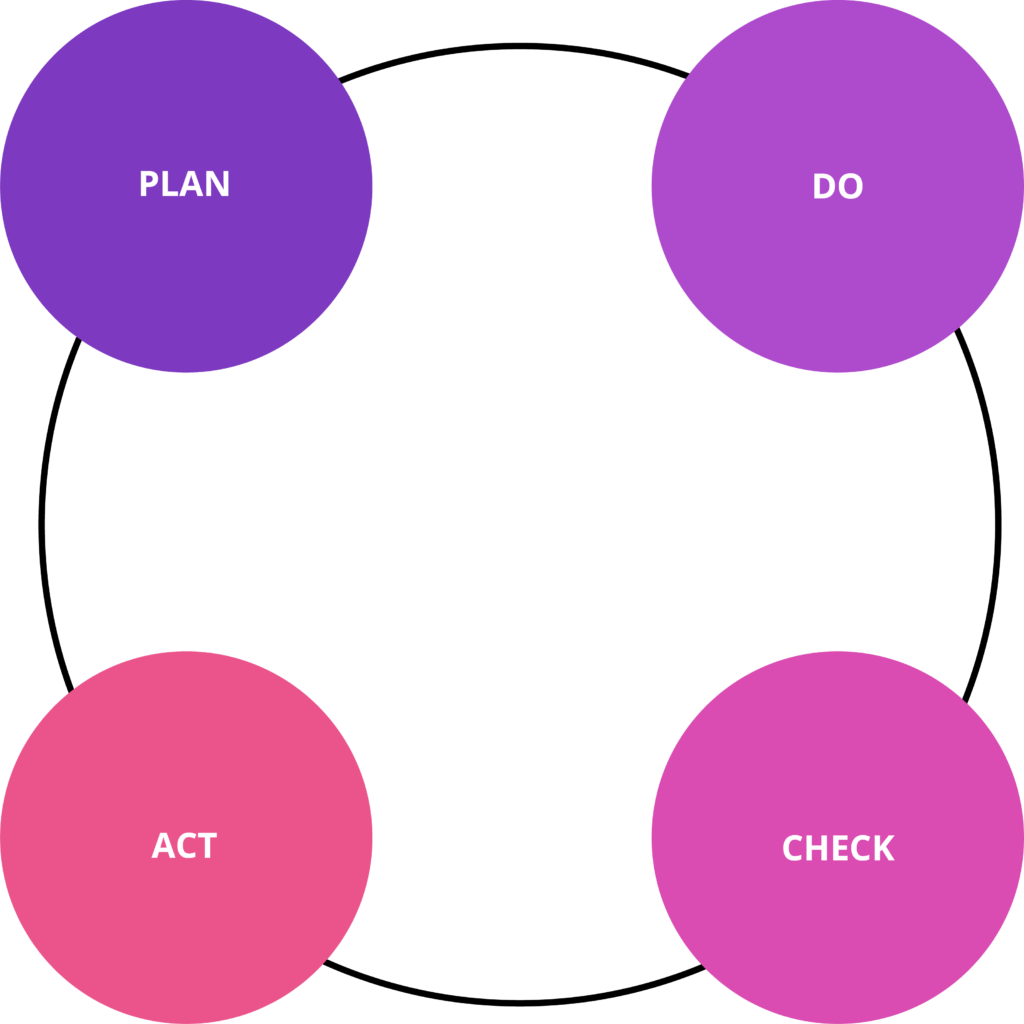
Detail Pdca Six Sigma Koleksi Nomer 3
Modified and popularized the Shewart cycle (PDCA) to what is now referred to as the "Statistical Method From the Viewpoint Deming Cycle (Plan, Do, Study, of Quality Control" Key Figures in PDCA Act). Plan Tools: Direct observation of process

SOLUTION Tqm Pdca And Six Sigma Studypool
The PDCA Cycle is a methodical approach used in continuous improvement businesses. PDCA stands for the steps in the method, which are Plan, Do, Check and Act (sometimes called Adjust). The PDCA cycle was originally developed by A. Shewhart who was a statistician at Bell Telephone Laboratories.

DMAIC, PDCA, Lean 6 Sigma
PDCA (plan-do-check-act) cycle, which is also known as Deming Cycle, is a continuous quality improvement model proposed by W. Edwards Deming in the 1950's. He recommended that business processes need to be placed in a continuous feedback loop so that managers can identify and fix the parts of the process that need improvements.

Pdca Plan Do Check Act Pdca Cycle Deming Cycle Pdca Lean Six Sigma Pdca
PDCA (Plan, Do, Check, Act) is a time-tested methodology that forms the backbone of continuous improvement in various industries. The PDCA cycle, which embraces simplicity and systematic progression, facilitates problem-solving and process improvement by following four distinct stages.

Kaizen via PlanDoCheckAct PDCA Lean Six Sigma Belgium
The Deming Cycle (or Plan-Do-Check-Act (PDCA)) is a four-step iterative technique used to solve problems and to improve organizational processes. Dr. Walter A. Shewhart, the renowned physicist and statistician from Western Electric and Bell Labs, developed the original concept during the 1920s.

PDCA/PDSA
The Deming Cycle, also known as the PDCA (Plan-do-check-act) circle is one of the oldest models in the manufacturing world. It was a model that encourages continuous improvement and was first introduced to the world by W. Edwards Deming way back in the 1950s.

Pdca Six Sigma
PDCA, also known as the Plan-Do-Check-Act cycle, is a proven and powerful improvement method widely used within many organizations. With the PDCA Cycle, plans are drawn up, actions are carried out, and there is continuous evaluation. The intention of this cycle is to continuously guarantee quality. This is why there is a lot of evaluation, so.

InDepth Definition of the PDCA Cycle
The Plan-do-check-act cycle (Figure 1) is a four-step model for carrying out change. Just as a circle has no end, the PDCA cycle should be repeated again and again for continuous improvement. The PDCA cycle is considered a project planning tool. Figure 1: Plan-do-check-act cycle When to use the PDCA cycle PDCA example PDCA resources

Pdca X Six Sigma Substitutos Ou Complementares
Plan Do Check Act Cycle. The PDCA cycle, aka a Deming wheel, Shewhart wheel, or Shewhart Cycle, is the continuous improvement practice of making a Plan, Performing an action, Checking your results, and then Acting upon what you have learned. It's a popular improvement technique because it follows the natural progression of how people attack a.

Smart Things To Know About Six Sigma Free Epub Pdf Reader App Java Jar
PDCA stands for Plan-Do-Check-Act - a four-stage problem-solving model that enables organizations to continually improve processes, products or services.. It's particularly helpful for implementing Total Quality Management or Six Sigma initiatives, and for improving business processes generally. However, going through the PDCA/PDSA cycle.

FRACAS and Corrective Action CAPA Software per 8D, DMAIC, & PDCA
A PDCA Cycle is a Six Sigma quality improvement methodology that consists of four key steps: Plan, Do, Check, and Act. PDCA aims to improve processes by identifying potential problems and implementing solutions continuously. There are four steps in the cycle: Plan: The first step in the PDCA Cycle is to develop a plan for process improvement.

Six Sigma ou PDCA qual usar? Entenda as diferenças agora! YouTube
PDCA is an improvement cycle based on the scientific method of proposing a change in a process, implementing the change, measuring the results, and taking appropriate action. It also is known as the Deming Cycle or Deming Wheel after W. Edwards Deming, who introduced the concept in Japan in the 1950s.

Pdca Lean Vs Dmaic Six Sigma Voor Kaizen Coimbee CLOUD HOT GIRL
Six Sigma Terms PDCA (Plan-Do-Check-Act) Dr. W. Edwards Deming used a four step process, which is more of a cycle - - PLAN, DO, CHECK, ACT for process improvement. The idea in the PLAN step is to define the process to improve. The DO step is implementing the plan and measuring its performance.

"Integrating the PDCA Cycle and Six Sigma for Continuous Improvement"
Find, Organize, Clarify, Understand, Select (FOCUS - PDCA) Published: November 7, 2018 by Ken Feldman. PDCA (Plan-Do-Check-Act) is a popular iterative methodology to fix a problem or improve a process. Developed and promoted by Drs. Deming and Shewhart, it's used as a cycle of examining a problem, collecting some data, improving the process.

Παράδοση Συντηρητικό Φανταχτερός pdca tools
His approach was a three-step linear problem-solving method. Dr. W. Edwards Deming, the famous quality-control pioneer popularized the technique in the 1950s and took Shewhart's linear three-step process and revised it to be the iterative four-step cycle he called Plan, Do, Check, Act (PDCA). In 1986, Deming revised the description of PDCA.

PDCA The Lean Six Sigma Company
What is PDCA? The PDCA cycle, also known as the Shewhart cycle, is a management tool that structures thinking into four phases, which are: Plan, Do, Control, and Act. The image below shows how the PDCA cycle can have the activities defined in each stage: To continuously improve production processes, you can apply the PDCA cycle to solve problems.